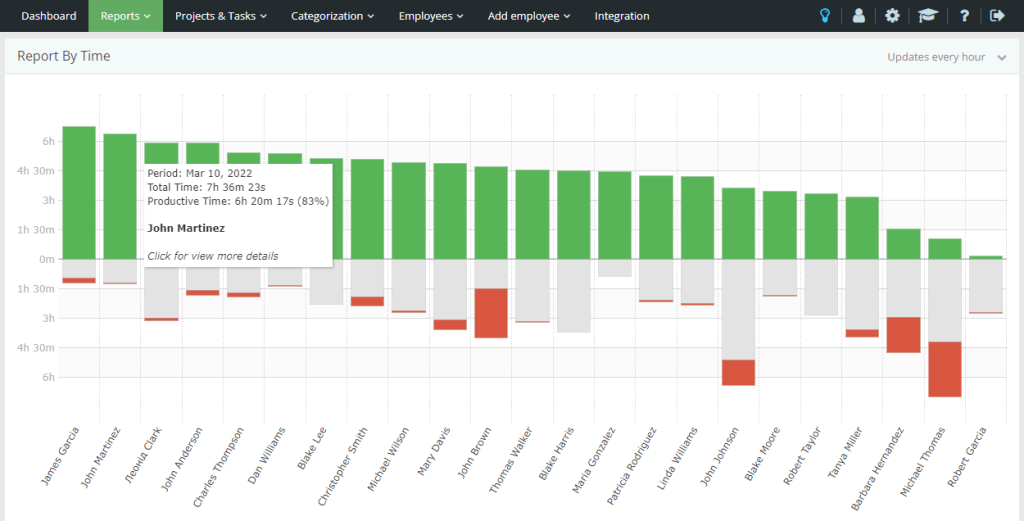Why busy doesn't mean productive
Your team is swamped. Slack notifications ping constantly, calendars are packed with back-to-back meetings, and project boards show dozens of active tasks. Yet somehow, according to PMI research, 48% of projects still miss their deadlines. The disconnect between activity and actual progress has become the hidden crisis of modern knowledge work.
Research by McKinsey reveals that knowledge workers spend only 39% of their time on role-specific tasks. The remaining 61% disappears into coordination activities, status updates, and context switching between projects. This means your “busy” team is actually spending more time managing work than doing it, creating the illusion of productivity while results lag behind expectations.
The real cost of missed deadlines despite busy schedules
When deadlines slip despite apparent team busyness, the financial impact extends far beyond project delays. Companies face increased costs from rushed overtime work, client retention issues, and damaged reputations that affect future business opportunities. A single missed deadline can trigger cascading delays across multiple projects, multiplying the original cost impact.
The hidden expense lies in opportunity costs. While teams scramble to catch up on delayed projects, they miss chances to pursue new initiatives or optimize existing processes. Every missed deadline reduces stakeholder confidence and can severely undermine trust in your team's capabilities. This erosion of credibility becomes a competitive disadvantage that's difficult to quantify but expensive to rebuild.
What data shows about where time really goes
Time tracking reveals a startling gap between perceived productivity and actual output. Teams that implement comprehensive time tracking often discover they're losing 15-25% of capacity to invisible activities that never appear on project boards. A marketing team implementing detailed time tracking found 20% of their hours were consumed by hidden rework cycles, approval delays, and communication overhead that traditional project management tools completely missed.
The most common time drains identified through tracking data include:
- Excessive email coordination that could be streamlined through better processes
- Redundant status meetings that consume hours without advancing project outcomes
- Context switching penalties when team members juggle too many concurrent priorities
- Waiting periods for approvals, feedback, or dependencies from other departments
- Rework cycles caused by unclear requirements or changing specifications
This data transforms abstract feelings of being overwhelmed into concrete opportunities for process improvement and capacity optimization.
How perfectionism creates invisible bottlenecks
Many teams mistake extensive planning phases and multiple review cycles for thorough execution. This perfectionist tendency creates endless preparation that delays actual work while giving the appearance of diligent effort. Research shows that 47% of employees struggle to understand project direction, leading to over-analysis and delayed starts.

The revision trap compounds this effect. Teams get caught in endless refinement cycles, tweaking requirements and optimizing plans instead of shipping working solutions. Each revision feels like progress but actually extends timelines while providing diminishing returns. Perfectionist cultures often reward process over outcomes, encouraging teams to demonstrate thoroughness through extensive documentation rather than delivering results.
How time tracking gives you clarity, not control
Time tracking transforms activity measurement from subjective impressions to objective data. Modern solutions like Yaware TimeTracker integrate seamlessly with existing project management tools to provide transparency without surveillance. The platform reveals patterns invisible to traditional project boards, showing the gap between planned work and actual time allocation across teams and individuals.
Unlike micromanagement approaches, effective time tracking focuses on process improvement rather than individual monitoring. Teams gain self-awareness about their actual work patterns while managers get aggregate insights for better resource planning. The goal isn't to watch employees but to identify systematic bottlenecks that prevent busy teams from meeting their deadlines consistently.
Wonder where your busy hours actually go? Try Yaware TimeTracker free for 14 days and discover what's really happening between the meetings, messages, and missed deadlines. See the data that explains why busy doesn't always mean productive.

